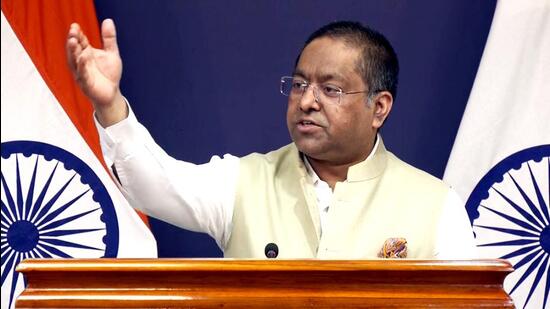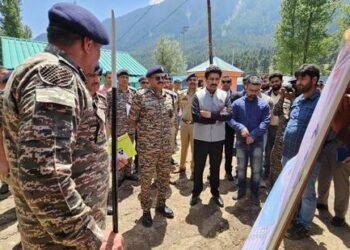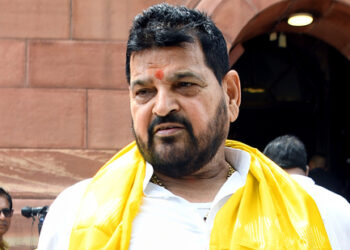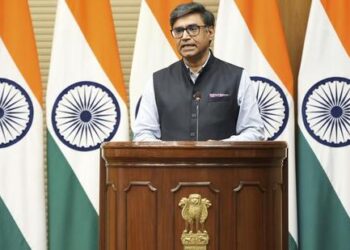India’s Ministry of External Affairs (MEA) on Thursday strongly rejected allegations from Bangladesh’s interim government that accused New Delhi of pursuing regional hegemony, calling the claims a diversion from internal governance failures in Dhaka.
Speaking at a weekly media briefing in New Delhi, MEA spokesperson Randhir Jaiswal said such comments from Bangladeshi officials were an attempt to shift public attention from pressing domestic challenges.
“As far as the government there is concerned, it is their responsibility to deal with governance issues. When statements like this are made, it feels like you are trying to deflect internal governance challenges in another direction,” Jaiswal said. “Saying that these challenges are being caused by others will not secure a solution to the problem.”
The controversy began after a meeting between Bangladesh’s Chief Adviser Muhammad Yunus and Nagorik Oikya president Mahmudur Rahman Manna. Following their discussion, Manna alleged at a press conference that Yunus had warned of a “conspiracy of Indian hegemony” threatening Bangladesh’s sovereignty and stability.
“He [Yunus] started the discussion by saying that we are in a deep crisis,” Manna told local media. “By crisis, he meant the conspiracy of Indian hegemony. Indian hegemony does not want to accept this change in our country at all. If they could, they would destroy us in a single day.”
The MEA’s response on Thursday was measured but firm. While rejecting the accusation, Jaiswal noted that India remains committed to its partnership with Bangladesh.
In the same press briefing, Jaiswal also addressed concerns around the U.S. decision to pause new student visa interview scheduling—a move that could affect thousands of Indian students preparing for fall admissions. While acknowledging that visa issuance is a sovereign matter, he urged that “applications of Indian students be considered on merit” so that they can join academic programs on time.
The briefing came as Foreign Secretary Vikram Misri concluded a three-day visit to the U.S., where discussions centered on trade, critical technologies, defense cooperation, and strengthening forums like the Quad, the India-Middle East-Europe Economic Corridor, and the I2U2 grouping.
Jaiswal also responded to the U.S. narrative on the recent military ceasefire between India and Pakistan. On May 10, a ceasefire was announced following escalations linked to India’s Operation Sindoor. While Washington claimed to have played a mediatory role—asserting it offered trade access as an incentive—India has pushed back, stating that the truce was achieved through direct military contacts between the two sides.
“From the time Operation Sindoor commenced on May 7 till the understanding of cessation of firing and military action on May 10, there were conversations between Indian and US leaders,” Jaiswal clarified. “The issue of trade or tariffs did not come up in any of those discussions.”
He reaffirmed that the ceasefire agreement was a bilateral achievement, mediated through dialogue between the Directors General of Military Operations (DGMOs) of India and Pakistan, and not externally imposed.








 India
India












